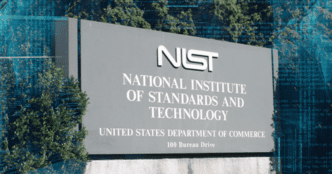OpenSNP, a widely known open-source repository for genetic data, will permanently shut down and erase all stored information by the end of April. Co-founder Bastian Greshake Tzovaras confirmed the decision, citing growing concerns about data privacy and the evolving political landscape.
Originally launched in 2011 by Greshake Tzovaras, Philipp Bayer, and Helge Rausch. OpenSNP provided a platform where users of genetic testing services like 23andMe could upload their results, compare genetic traits, and contribute to research. With nearly 13,000 users, the repository played a significant role in scientific studies, helping to map over 7,500 genomes.
The decision to close the platform comes amid rising fears over the misuse of genetic information. The recent bankruptcy filing by 23andMe has raised alarms about the fate of its vast customer data, with legal officials in California and New York advising users to delete their information before it potentially changes hands.
Greshake Tzovaras also pointed to the global rise of authoritarian governments as another reason for shutting down openSNP. He expressed concerns over government-led data removals and scientific suppression. Stating that the risk of maintaining a public genetic database is much higher today than when the project started.
“The balance between the benefits and risks of making genetic data publicly available has shifted dramatically,” he wrote in a blog post. “Given today’s climate, the most responsible course of action is to sunset the platform and erase its data.”
When asked why the shutdown was happening now, Greshake Tzovaras pointed to recent political developments in the U.S. He referenced reports of individuals being detained in immigration raids under questionable circumstances. Stating that such actions highlight the potential for genetic data misuse.
He also expressed fears that scientific research could be twisted to support outdated, harmful ideologies. Ptentially leading to the resurgence of eugenics-based arguments.
For years, openSNP navigated the fine line between open data access and privacy concerns. A notable case in 2018 saw law enforcement use genetic information from genealogy service GEDmatch to track down a serial killer. Although openSNP was never approached for similar purposes, today’s environment makes data exploitation a much greater threat.
“This administration’s treatment of science and institutions is a stark departure from previous years,” he said. “With the increasing risks surrounding genetic data, we felt it was time to make this difficult decision.”
Despite its closure, openSNP leaves behind a lasting impact. Unlike commercial genetic data ventures that sought to monetize personal information, openSNP ran on a shoestring budget of just $100 per month, proving that open-source initiatives can make meaningful contributions.
Throughout its 14-year run, the platform supported research in fields ranging from cybersecurity to biomedicine. Many students and researchers benefited from access to real-world genetic data, which might have otherwise been unavailable to them.
“Our goal was to democratize genomic access, and in many ways, we achieved that,” said Greshake Tzovaras.













